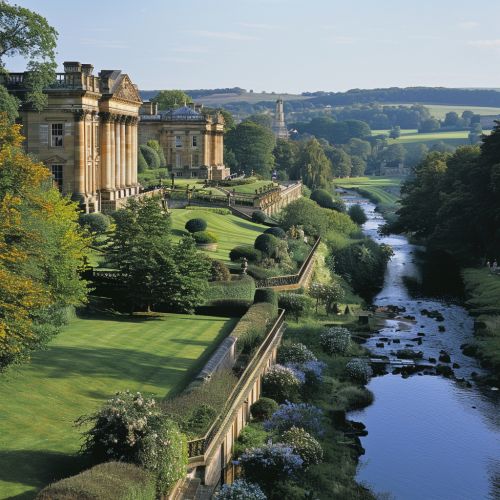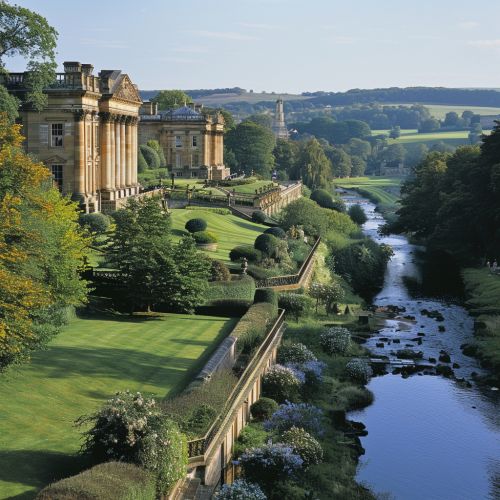Duke of Devonshire
History of the Title
The title of Duke of Devonshire is a significant and historic title in the Peerage of England. It was created in 1694 for William Cavendish, 4th Earl of Devonshire, a prominent Whig politician and supporter of the Glorious Revolution. The Cavendish family, which holds the title, has a long and storied history dating back to the 16th century.
Origins
The Cavendish family first rose to prominence under Sir William Cavendish, who served as a courtier to King Henry VIII. His marriage to Bess of Hardwick, one of the wealthiest women in England, further elevated the family's status. Their descendants continued to amass wealth and influence, leading to the creation of the Earldom of Devonshire in 1618 for their son, William Cavendish.
Creation of the Dukedom
The title of Duke of Devonshire was created in 1694 for William Cavendish, 4th Earl of Devonshire, in recognition of his support for William III and Mary II during the Glorious Revolution. The Cavendish family played a crucial role in the political landscape of the time, with members serving in various high-ranking positions within the government.
Estates and Residences
The Dukes of Devonshire are known for their extensive estates and grand residences. The most notable of these is Chatsworth House, located in Derbyshire. Chatsworth has been the family seat since the 16th century and is renowned for its architecture, art collection, and gardens.


Chatsworth House
Chatsworth House is one of the most famous stately homes in England. It was built by Bess of Hardwick and her second husband, Sir William Cavendish, and has been expanded and renovated by successive generations of the Cavendish family. The house is known for its Baroque architecture, extensive art collection, and beautifully landscaped gardens.
Other Estates
In addition to Chatsworth House, the Dukes of Devonshire own several other significant properties, including:
- Bolton Abbey in North Yorkshire
- Lismore Castle in County Waterford, Ireland
- Devonshire House in London (demolished in the 1920s)
Political Influence
The Dukes of Devonshire have been influential figures in British politics for centuries. Members of the Cavendish family have held various political offices, including:
- Lord Lieutenant of Ireland
- Lord Chamberlain
- Chancellor of the University of Cambridge
Whig Party
The Cavendish family were prominent members of the Whig Party, which was one of the two main political parties in Britain during the 17th and 18th centuries. The Whigs were known for their support of constitutional monarchism, the supremacy of Parliament, and opposition to absolute monarchy.
Key Political Figures
Several Dukes of Devonshire have played significant roles in British politics, including:
- William Cavendish, 4th Duke of Devonshire, who served as Prime Minister in 1756-1757
- Spencer Cavendish, 8th Duke of Devonshire, who held various cabinet positions and was a key figure in the Liberal Unionist Party
Cultural Contributions
The Dukes of Devonshire have made substantial contributions to British culture, particularly in the fields of art, literature, and architecture.
Art Collection
The Cavendish family has amassed an extensive art collection, which includes works by renowned artists such as Rembrandt, Van Dyck, and Gainsborough. Many of these works are displayed at Chatsworth House, which is open to the public.
Literary Connections
The Cavendish family has also been connected to several notable literary figures. For example, the poet John Keats was a guest at Chatsworth House, and the writer Evelyn Waugh was a friend of the family.
Modern Era
In the modern era, the Dukes of Devonshire continue to play a significant role in British society. The current Duke, Peregrine Cavendish, 12th Duke of Devonshire, has focused on the preservation and promotion of the family's estates and cultural heritage.
Preservation and Conservation
The current Duke has been actively involved in various preservation and conservation efforts. This includes the restoration of Chatsworth House and its gardens, as well as the promotion of sustainable farming practices on the family's estates.
Public Engagement
The Dukes of Devonshire have also been committed to public engagement and education. Chatsworth House hosts numerous events and exhibitions throughout the year, attracting visitors from around the world. The estate also supports various educational programs and initiatives.
